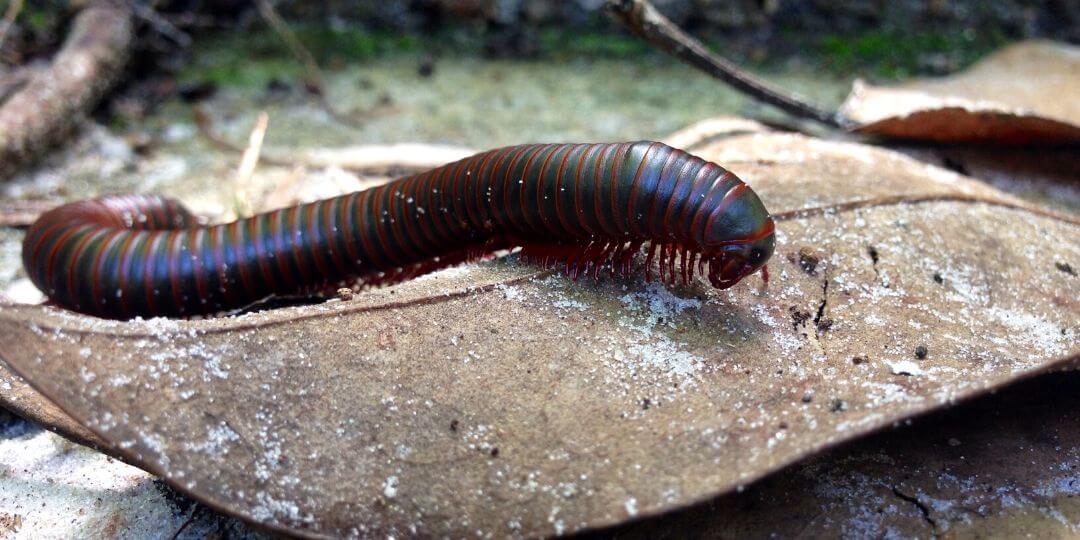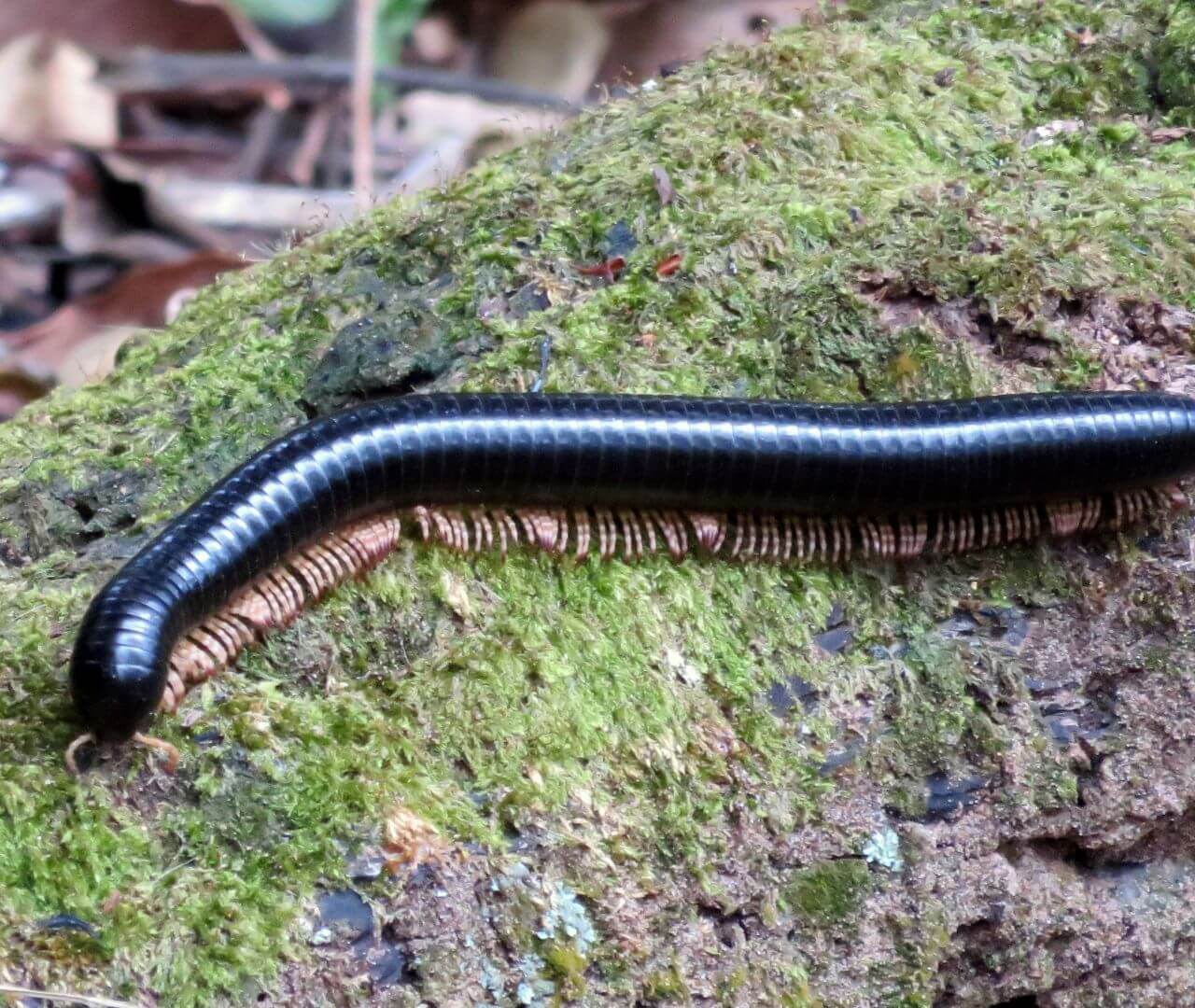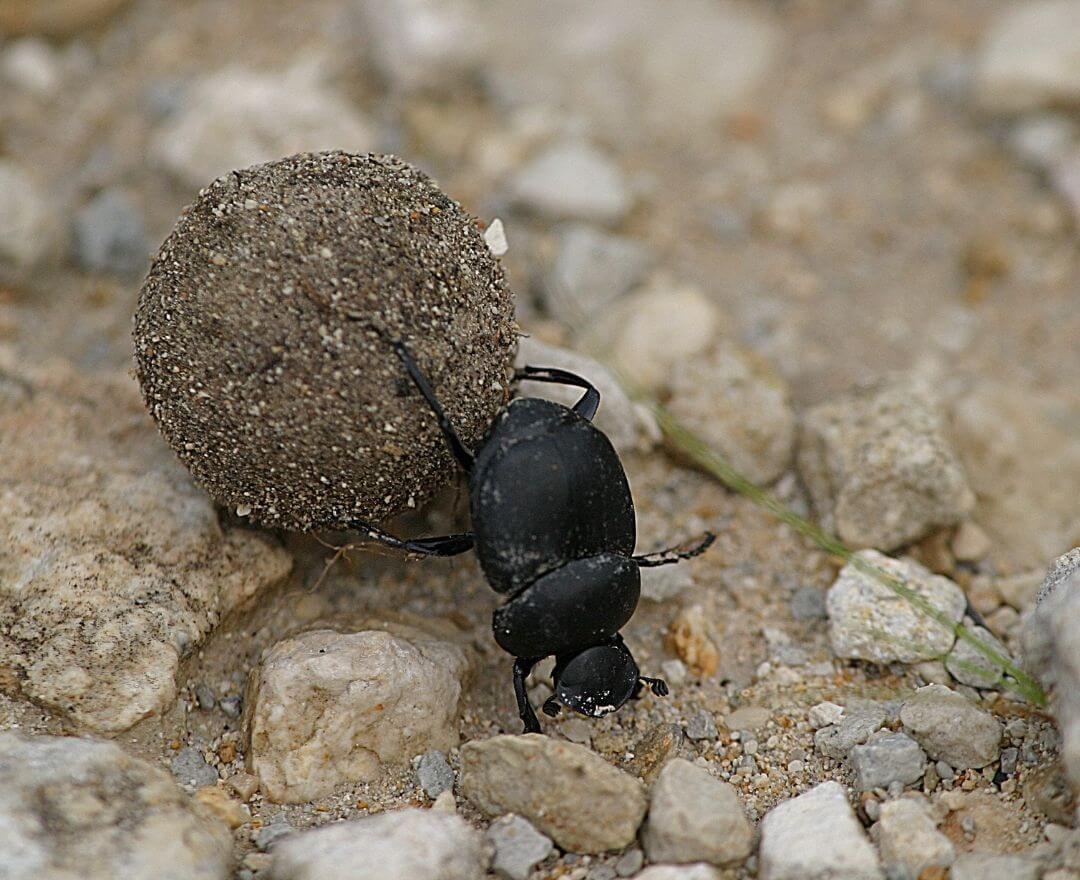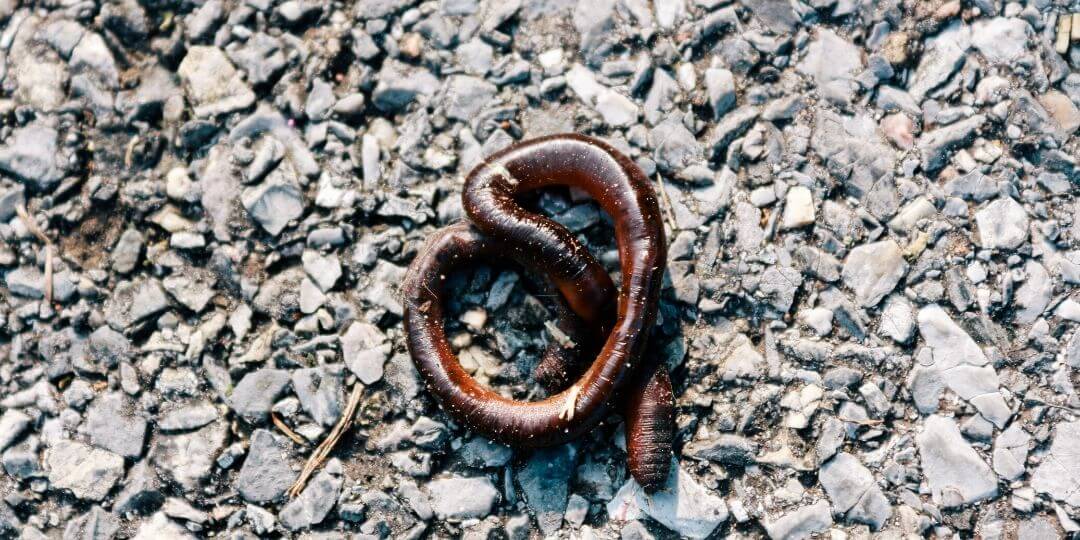Nutrient Cycle

What Is the Nutrient Cycle?
Word of the Week
Detritivore
A detritivore is an animal that eats dead matter and adds nutrients back into the soil through its waste. Detritivores are a type of decomposer!
Earthworms, millipedes, and even crabs are examples of detritivores.
Species Spotlight
Giant African Millipede
Archispirostreptus gigas
Of all 10,000 species of millipedes in the world, the giant African millipede is the largest; it can grow up to 1-ft long! These gigantic invertebrates live in the rainforests of Africa where they spend their days hiding under piles of leaves and feeding on dead matter. Like all millipedes, giant African millipedes are important in their ecosystem because they are detritivores.
While it may sound like a millipede has 1 million legs, the giant African millipede only has about 300-400 legs. Each body segment has four legs and millipedes grow a new body segment and four more legs every time they molt (shed their exoskeleton)! Giant African millipedes blend into the forest floor and rely on camouflage to hide from predators. If spotted, they curl into a tight ball and release a gross-tasting liquid. These millipedes might look intimidating, but they are harmless to humans and greatly benefit their environment!
BRAIN BLAST
Millipedes and centipedes are commonly confused! Research both animals and describe any similarities or differences they have.
Conservation Corner
Nitrogen Pollution Vs. Decomposers
For an ecosystem to function properly, each organism must be doing its job! For some animals, their job may be to spread seeds around the forest or to prey on herbivores so they don't eat too many plants. For decomposers, like fungi (mushrooms) and bacteria, their job is to recycle nutrients back into the soil. When one organism is not doing its job, it can throw the ecosystem out of balance.
Decomposers have recently been affected by nitrogen pollution in the environment. Too much nitrogen can reduce the amount decomposers can break down, leading to fewer nutrients in the soil. Nitrogen pollution enters the environment through fertilizer or greenhouse gases in the air. As this extra nitrogen enters ecosystems, it slows decomposition and throws the ecosystem out of balance. You can help reduce nitrogen pollution by using less energy and avoiding chemical fertilizer (by shopping organic!).
Nutrient Cycle
Match each part of the nutrient cycle with the appropriate label.
Glossary
Consumer
An organism that cannot make its own food and must feed on other organism to survive (animals).
Decomposer
An organism that breaks down dead matter and returns nutrients to the soil.
Detritivore
An animal that feeds on dead matter and returns nutrients to the soil (a type of decomposer).
Nutrients
Substances that plants and animals need to grow and remain healthy.
Nutrient Cycle
The process of nutrients moving throughout the living and nonliving parts of an ecosystem.
Photosynthesis
The process of plants using energy from the sun to produce food from carbon dioxide and water.
Producer
An organism that can use energy from the sun to produce food for themselves (most plants).





